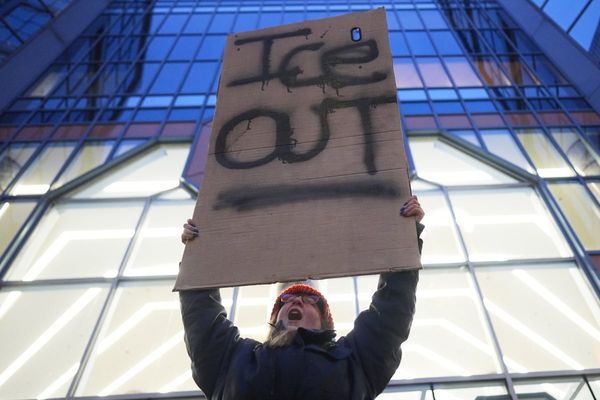
Boys and men from generation Z are more likely than older baby boomers to believe that feminism has done more harm than good, according to research that shows a “real risk of fractious division among this coming generation”.
One in four UK males aged 16 to 29 believe it is harder to be a man than a woman and a fifth of those who have heard of him now look favourably on the social media influencer Andrew Tate, the polling of over 3,600 people found.
Tate, the British-American former kickboxer who has 8.7 million followers on the social media platform X, is facing charges in Romania, which he denies, of human trafficking, rape and forming a criminal gang to sexually exploit women. He has talked about hitting and choking women and has said he is “absolutely a misogynist”.
The bestselling author and Canadian academic, Jordan Peterson, is also seen favourably by 32% of 16 to 29-year-old men, compared with 12% among women of the same generation. Peterson speaks up for “demoralised young men” and says Tate offers “forthright aggression” as an alternative to “cringing defeat”.
On feminism, 16% of gen Z males felt it had done more harm than good. Among over-60s the figure was 13%.
The figures emerged from Ipsos polling for King’s College London’s Policy Institute and the Global Institute for Women’s Leadership. The research also found that 37% of men aged 16 to 29 consider “toxic masculinity” an unhelpful phrase, roughly double the number of young women who don’t like it.
“This is a new and unusual generational pattern,” said Prof Bobby Duffy, director of the Policy Institute. “Normally, it tends to be the case that younger generations are consistently more comfortable with emerging social norms, as they grew up with these as a natural part of their lives.”
Larger proportions of young men still think it’s harder to be a woman today than a man, that feminism has done more good than harm and have an unfavourable view of Tate.
But Duffy said: “There is a consistent minority of between one-fifth and one-third who hold the opposite view. This points to a real risk of fractious division among this coming generation.”
Prof Rosie Campbell, director of the Global Institute for Women’s Leadership at King’s, said: “The fact that this group is the first to derive most of their information from social media is likely to be at least part of the explanation.
“There has been a zeitgeist where young women feel they can own the idea of feminist identity … [Young men] hear a lot about girl power but don’t, at this stage in their lives, understand the inequalities that we know are in the world when you hit work and childcare.”
In the meantime, social media algorithms are filling the vacuum, she said. “This could be something that changes when young men enter the workforce but we can’t take that for granted given how important social media is in the way we understand ourselves.”
Ethnic minority men are most likely to follow Tate, with more than a third agreeing he “raises important points about real threats to male identity and gender roles” compared with 12% among white men. Sample sizes are too small to determine which ethnic minority groups might be driving this, the researchers stressed.
Tate, who is mixed race, has said he converted to Islam after previously saying he was an atheist. He has been tweeting in Jamaican patois and declared that melanin, the skin pigment, “gives wisdom and insight, along with bravery and physical power”.
Tate preaches that young men should take control of their own lives, shouting at them in one recent video over footage of him vaping, firing a gun and driving a sports car: “You’re not supposed to be happy. You’re supposed to be monumentally influential and capable.”
Colin, a youth worker in London, said some of Tate’s appeal to black and minority ethnic young people appeared to be that he offered a more direct route to change in their lives.
“Young men from disadvantaged communities hear a lot of talk around policies to tackle inequality and racial discrimination,” Colin said. “These things are abstract. People don’t feel the difference in their lives immediately and it is hard to see the difference being made.
“So, Black Lives Matter was important and touched on deep structural inequalities, but a lot of young men ask what difference does that make to me today. Andrew Tate talks about immediacy and that’s what people find attractive. He says this is how you should be a man. This is how you should get rich. He offers an alternative to the slow process of political change.”
This article was amended on 1 February 2024 to remove some personal information.







